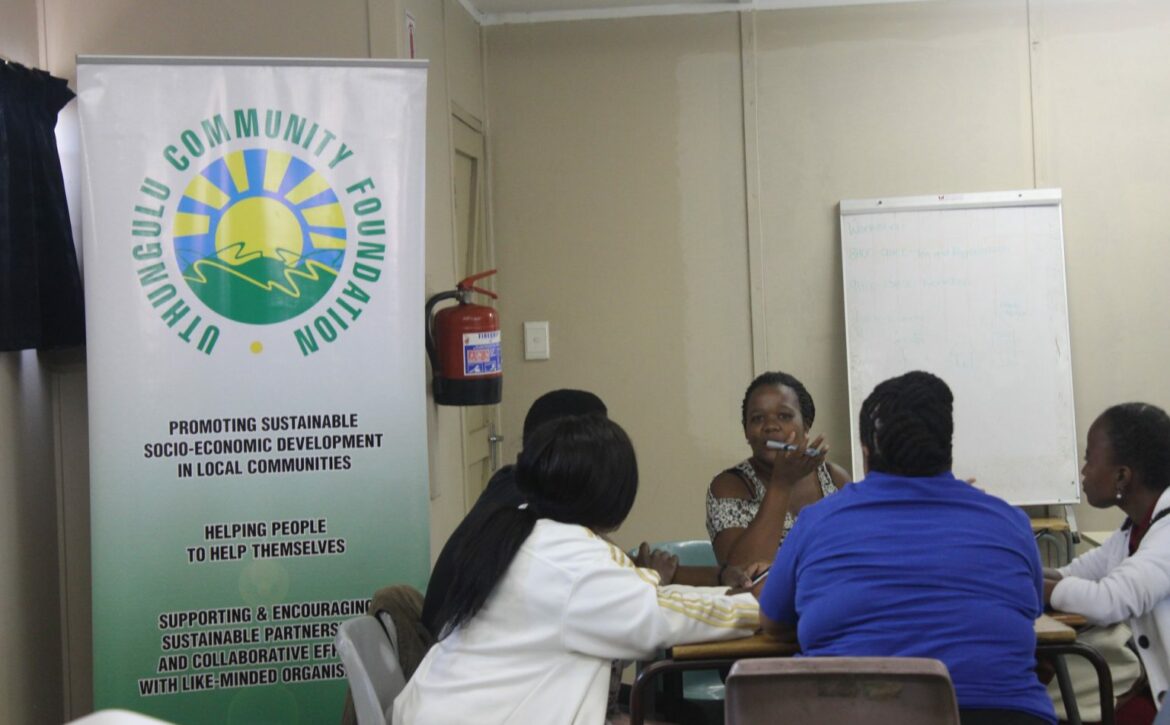Moving away from donor funding to becoming a sustainable business entity

Simphiwe Mbatha chats about the new strategy of uThungulu Foundation and their upcoming projects
Simphiwe Mbatha’s first interaction with uThungulu Foundation was in the year 2003 as a young electrical engineer, as he found that didn’t give him the sense of fulfilment he sought. He joined Uthungulu as a volunteer for two years, then worked as a project officer for almost 12 years. Taking over the role of CEO in 2017, Mbatha believes he brings a lot to the position, having a lot of experience at grassroots level. He is passionate about the work of the foundation, and the difference it makes in people’s lives.
A network of support
The concept of community foundations was not widely understood in South Africa, especially when it comes to the large endowment that they are not utilizing. Mbatha says that he spends time educating, especially the younger members, on why it is important to keep sourcing funding. He emphasizes that the priorities of the organization are collaborating with the community, sharing knowledge and resources, and showing people that they have skills to empower themselves.
Looking back over the past 20 years, Mbatha has seen a need to restructure the uThungulu in order to increase its relevance. While a trying time for all, uThungulu used the onset of the COVID-19 as an opportunity to develop strategies to recover. The organization is restructuring itself towards a more of a local context, with a goal of becoming a leader in philanthropy over the next 20 years.
uThungulu has been fortunate to have external donors to support its operations. On the strength of this, they have established three programmes, the first of which focuses on food security, the second on gender-based violence, while the third on youth in entrepreneurship. Mbatha remarks, “We have a very active Board and have started new projects to which they contribute their time and skills.”
During the COVID-19 lockdown period, staff were not categorized as essential workers, so they used the time to plan for the time post-COVID. They ran various awareness programmes, as well as distributing PPE, and vegetable seedlings, but focused mainly on what they would do afterwards.
Changing focus to create bigger change
Being part of Southern Africa Trust’s capacity-building programme has enabled uThungulu to recruit a new board and develop its strategy. In particular, the Foundation finetuned their COVID-19 response, like anticipating the second wave of infections after churches reopened, by supplying PPE and sanitizers, and creating more awareness. Receiving funding from the Trust, based on the business cases Simphiwe was able to prepare, has also been a welcome experience.
“Having the Southern Africa Trust as a partner has been a positive contribution. It came at the right time, in terms of the strategic direction we’ve been embarking on and providing the resources to implement the strategy. It’s been a wonderful journey with the Trust.”
One of the key strategies for the long-term sustainability of uThungulu is to develop a separate business entity that will be able to put money into the Foundation, rather than relying on outside donors. Mbatah believes this is the way forward in order to fully realize the objectives set out in the strategy, and not to change objectives and goals based on donor money. This will change the mindset of donors from just giving, to one of becoming a partner and making an impact, based on the values of the organization.
The Southern Africa Trust acknowledges and thanks the Charles Stewart Mott Foundation for their support and partnership of this work.









